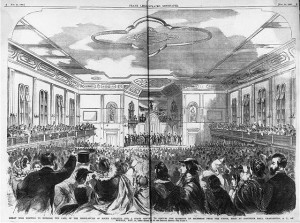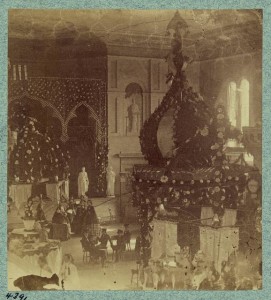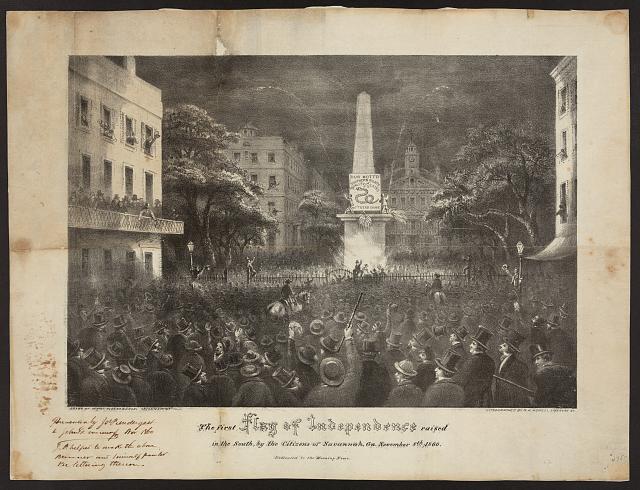
“Great mass meeting to endorse the call of the Legislature of South Carolina for a state convention to discuss the question of secession from the Union, held at Institute Hall, Charleston, S.C., on Monday, Nov. 12, 1860” (Library of Congress)
Four years to the day after South Carolina officially seceded from the United States, Richmond citizens could read about a bill in the Yankee Congress to manage the return of the rebel states: slavery would be forever abolished; provisional governors would enforce U.S. and antebellum state laws; high level Confederate military officers would not be citizens of the United States. From the Richmond Daily Dispatch December 20, 1864:
“reconstruction” of the Confederate States.
The bill for “reconstructing” the Governments of the “rebellious States” was introduced in the Federal Congress on Friday. We find the following summary of its provisions in the Tribune:
It provides for the appointment by the President of provisional governors of rebel States, who shall see that the laws of the United States and of the States before the rebellion are enforced. But no law or usage recognizing slavery shall be recognized by any officer or court in such State. It emancipates all slaves in such State and their posterity forever, and provides for the discharge, on habeas corpus, of persons held to service on pretence of ownership.
It provides for the punishment of attempts to re-enslave emancipated persons. It declares that officers of the rank of colonel, or higher, in the rebel service, are not citizens of the United States. The bill further provides for the calling of conventions in States whose governments have been usurped and overthrown as soon as the military resistance to the United States shall have been suppressed and the people shall have sufficiently returned to their allegiance. The conventions are required to provide that persons in rebel civil and military service of, and above, the grade of colonel, shall not vote for, or be, a member of the Legislature or Governor.
Involuntary servitude is prohibited, and the freedom of all persons to be guaranteed in the said States. No debt, State or Confederate, created by the usurping power is to be recognized. If the convention shall refuse to re-establish the State government upon the above conditions, the provisional government is to declare it dissolved, and another election of delegates is to be ordered.
On December 20, 1864 everyone North and South knew that Sherman’s Union army was closing in on another hotbed of secession:


